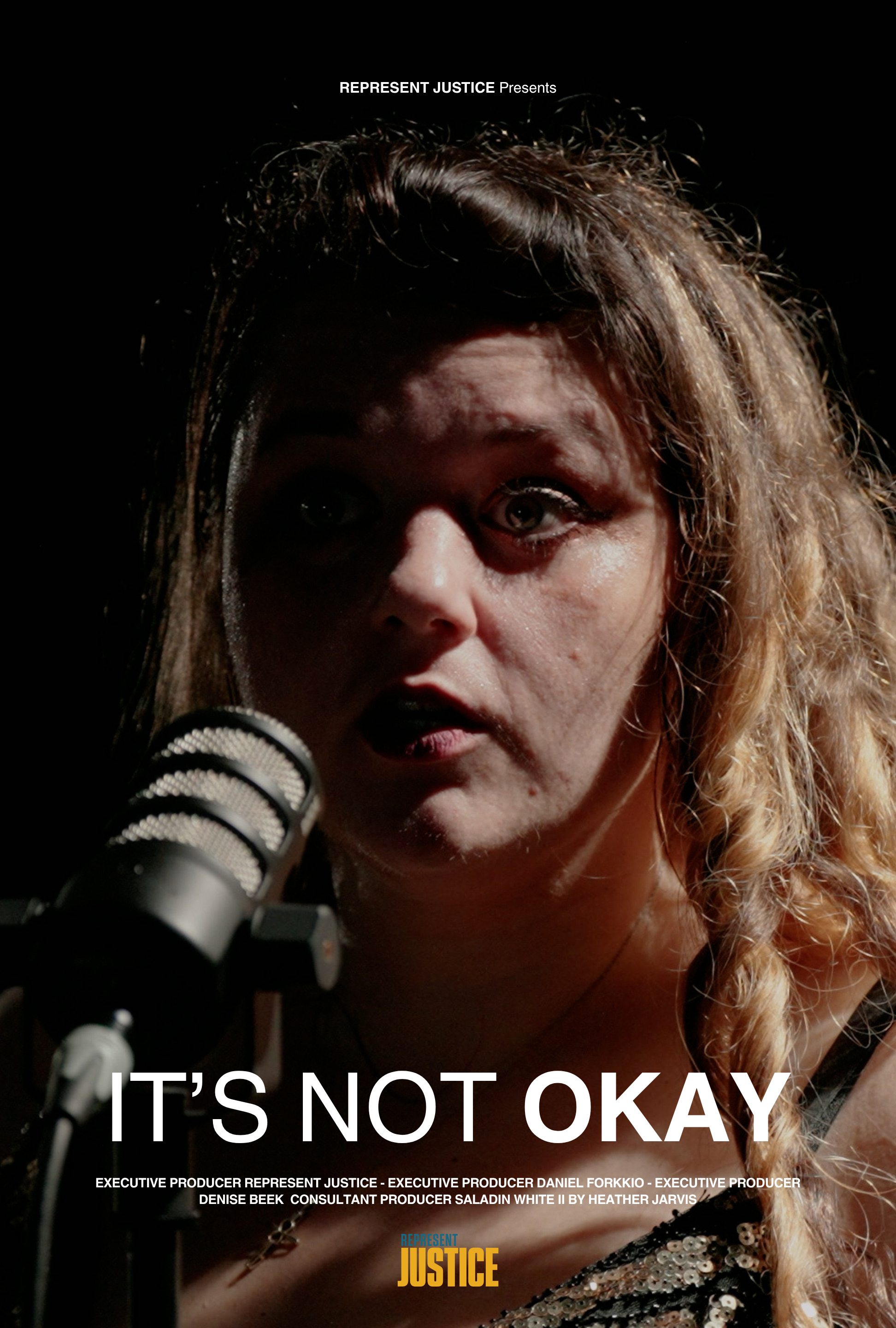It’s Not Okay
By Heather Jarvis
A powerful spoken word piece reveals the messy, nonlinear truth of reentry—and the myth of the “perfect” comeback story.
In It’s Not Okay, a formerly incarcerated woman stands alone under a spotlight in an empty warehouse, reciting a raw, rhythmic spoken word poem that unravels the myth of the perfect reentry story. As her verses land, the stage dissolves into real footage of her journey — reunions, breakdowns, setbacks — until performance and reality blur into one truth: healing isn’t linear, and it’s definitely not okay.
The film reframes reentry as a messy, emotional, and deeply human process, challenging the notion that success can be measured solely by securing housing or employment.
The film brings attention to Post-Incarceration Syndrome (PICS) as a real and urgent mental health concern, calling for its formal clinical recognition and for trauma-informed care to be integrated into all reentry programs so that healing is prioritized alongside stability.
To learn more about Heather and her work or to hire her for any trainings, please visit her website here.
About the Issue
Post-Incarceration Syndrome (PICS) is a cluster of emotional, cognitive, and social symptoms caused by prolonged incarceration and the trauma of reentry. Symptoms can mirror Post-Traumatic Stress Disorder (PTSD), including hypervigilance, anxiety, difficulty trusting others, depression, and social withdrawal.
Despite its prevalence among formerly incarcerated individuals, PICS is not formally recognized by the American Psychiatric Association (APA), leaving many without insurance coverage for mental health treatment. It is estimated that 40% of all people released from prison each year suffer from PICS.*
There is an urgent need for West Virginia to lead on policy reforms that formally recognize PICS, fund specialized treatment, and train reentry providers to address it.



